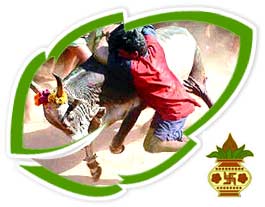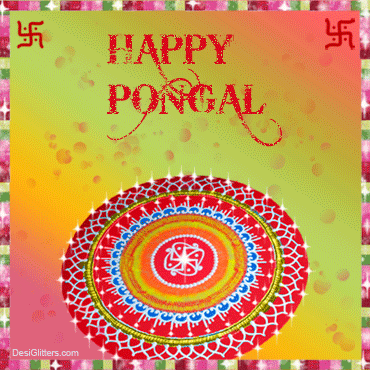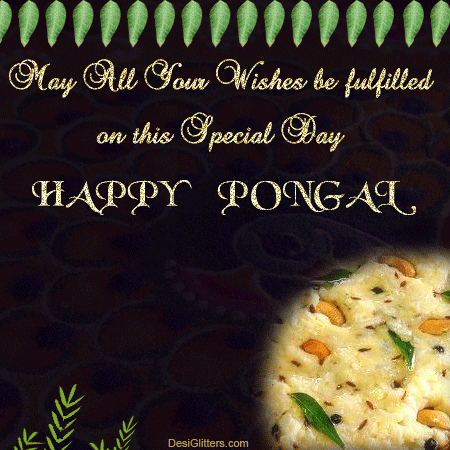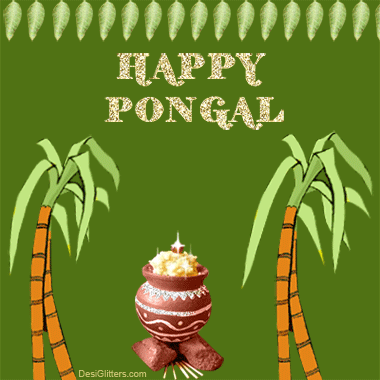In Hindu temples bells, drums, clarinets and conch shells herald the joyous occasion of Pongal. To symbolize a bountiful harvest, rice is cooked in new pots until they boil over. Some of the rituals performed in the temple include the preparation of rice, the chanting of prayers and the offering of vegetables, sugar cane and spices to the gods. Devotees then consume the offerings to exonerate themselves of past sins.
Pongal signals the end of the traditional farming season, giving farmers a break from their monotonous routine. Farmers also perform puja to some crops, signaling the end of the traditional farming season. It also sets the pace for a series of festivals to follow in a calendar year. In fact, four festivals are celebrated in Tamil Nadu for four consecutive days in that week. 'Bogi' is celebrated on January 13, 'Pongal' on Jan 14, 'Maattuppongal' on Jan 15, and 'Thiruvalluvar Day' on Jan 16.
The festival is celebrated for four days. On, the first day, Bhogi, the old clothes and materials are thrown away and fired, marking the beginning of a new life. The second day, the Pongal day, is celebrated by boiling fresh milk early in the morning and allowing it to boil over the vessel - a tradition that is the literal translation for Pongal. People also prepare savories and sweets, visit each other's homes, and exchange greetings. The third day, Mattu Pongal, is meant to offer thanks to the cows and buffaloes, as they are used to plough the lands. On the last day, Kanum Pongal, people go out to picnic.
A festival called Jalli kathu is held in Madurai, Tiruchirapalli and Tanjavur,all in Tamil Nadu, on this day. Bundles of money are tied to the horns of Pongal ferocious bulls which the villagers try to retrieve. Everyone joins in the community meal, at which the food is made of the freshly harvested grain. This day is named and celebrated as Tamilian Tirunal in a fitting manner through out Tamil Nadu.
Thus, the harvest festival of Pongal symbolizes the veneration of the first fruit. The crop is harvested only after a certain time of the year, and cutting the crop before that time is strictly prohibited. Even though Pongal was originally a festival for the farming community, today it is celebrated by all. In south India, all three days of Pongal are considered important. However, those south Indians who have settled in the north usually celebrate only the second day. Coinciding with Makara Sankranti and Lohri of the north, it is also called Pongal Sankranti.
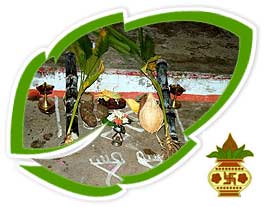
Pongal is celebrated in the month of January after the winter solstice. The date of Pongal usually remains same as it is reckoned according to the solar calendar that is more accurate than the lunar calendar. For Hindus the date of Pongal is extremely auspicious as it marks the sun's entry into Makaram Rashi or the Tropic of Capricorn from the Tropic of Cancer. On this day sun begins its journey northwards (Uttarayan) for a period of six months as opposed to southwards (Dakshinayan) movement. It is this fascinating and auspicious astronomical event that is celebrated as Pongal in South India and Makar Sankranti in North and Central India.
Pongal festival is celebrated for four continuous days beginning from the last day of Tamil month of Maargazhi (December-January) and lasting upto the third day of Thai. The second and the main day of Pongal called Surya Pongal marks the beginning of Tamil month of Thai that corresponds to the month of January - February according to the Gregorian calendar.
Pongal brings respite to the people as it marks the end of cold winter and the advent of spring. From this time onwards the length of the day increases and that of the night shortens in the Northern Hemisphere.
Following are the date on which the four days of Pongal will be celebrated in 2012:
- Bhogi Festival: 14th January.
- Surya Pongal: 15th January
- Maatu Pongal: 16th January
- Kaanum Pongal: 17th January
